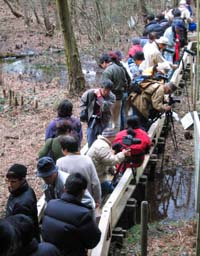| PureLandMountain.com |

Site Feed 

The Blog Brothers
Talk on the Wild Side 
Sushi passing
04/01/2002 - 04/30/2002
05/01/2002 - 05/31/2002
06/01/2002 - 06/30/2002
07/01/2002 - 07/31/2002
08/01/2002 - 08/31/2002
09/01/2002 - 09/30/2002
10/01/2002 - 10/31/2002
11/01/2002 - 11/30/2002
12/01/2002 - 12/31/2002
01/01/2003 - 01/31/2003
02/01/2003 - 02/28/2003
03/01/2003 - 03/31/2003
04/01/2003 - 04/30/2003
05/01/2003 - 05/31/2003
06/01/2003 - 06/30/2003
07/01/2003 - 07/31/2003
08/01/2003 - 08/31/2003
09/01/2003 - 09/30/2003
10/01/2003 - 10/31/2003
11/01/2003 - 11/30/2003
12/01/2003 - 12/31/2003
01/01/2004 - 01/31/2004
02/01/2004 - 02/29/2004
03/01/2004 - 03/31/2004
04/01/2004 - 04/30/2004
05/01/2004 - 05/31/2004
06/01/2004 - 06/30/2004
07/01/2004 - 07/31/2004
08/01/2004 - 08/31/2004
09/01/2004 - 09/30/2004
10/01/2004 - 10/31/2004
11/01/2004 - 11/30/2004
12/01/2004 - 12/31/2004
01/01/2005 - 01/31/2005
02/01/2005 - 02/28/2005
03/01/2005 - 03/31/2005
04/01/2005 - 04/30/2005
05/01/2005 - 05/31/2005
06/01/2005 - 06/30/2005
07/01/2005 - 07/31/2005
08/01/2005 - 08/31/2005
09/01/2005 - 09/30/2005
10/01/2005 - 10/31/2005
11/01/2005 - 11/30/2005
12/01/2005 - 12/31/2005
01/01/2006 - 01/31/2006
02/01/2006 - 02/28/2006
JapanFocus
Self-Winding
SlowFood
SolarCooking
Simple Living
Backwoods Home
PRwatch
The Night of the Flaming Marshmallows
Hira Hakko
Twin Toddlers Take No Prisoners
Japanese Garden Database
TheAuthorsGuild
InTheHeartland
Wired for Books
aLibris
David Bull
Roots Music
Edge
HealthOnTheNetFoundation
HowardStern
Pioneer Thinking
Gempler's
Japanese Garden Database
Herbs2000
EricGower
PandasThumb
Natural Dyeing
MoveOn
AltWeeklies
|
Thursday, February 27, 2003
Posted
Thursday, February 27, 2003
by Robert Brady
~~~~~~~~~~~~~~~~~~~~~~ Wednesday, February 26, 2003
Posted
Wednesday, February 26, 2003
by Robert Brady
~~~~~~~~~~~~~~~~~~~~~ Tuesday, February 25, 2003
Posted
Tuesday, February 25, 2003
by Robert Brady
~~~~~~~~~~~~~~~~~~~~~~~~~~ Monday, February 24, 2003
Posted
Monday, February 24, 2003
by Robert Brady
~~~~~~~~~~~~~~~~~~~~~~~~ Saturday, February 22, 2003
Posted
Saturday, February 22, 2003
by Robert Brady
~~~~~~~~~~~~~~~~~~~~~~~~~~~
Posted
Saturday, February 22, 2003
by Robert Brady
~~~~~~~~~~~~~~~~~~~~~~~ Friday, February 21, 2003
Posted
Friday, February 21, 2003
by Robert Brady
~~~~~~~~~~~~~~~~~~~~~~~~~ Wednesday, February 19, 2003
Posted
Wednesday, February 19, 2003
by Robert Brady
~~~~~~~~~~~~~~~~~~~~~~~~ Tuesday, February 18, 2003
Posted
Tuesday, February 18, 2003
by Robert Brady
~~~~~~~~~~~~~~~~~~~~~ Monday, February 17, 2003
Posted
Monday, February 17, 2003
by Robert Brady
~~~~~~~~~~~~~~~~~~~~~~~ Sunday, February 16, 2003
Posted
Sunday, February 16, 2003
by Robert Brady
~~~~~~~~~~~~~~~~~~~~~~~~
Posted
Sunday, February 16, 2003
by Robert Brady
~~~~~~~~~~~~~~~~~~~~~~~
Posted
Sunday, February 16, 2003
by Robert Brady
~~~~~~~~~~~~~~~~~~~~~~~~~~~~ Friday, February 14, 2003
Posted
Friday, February 14, 2003
by Robert Brady
~~~~~~~~~~~~~~~~~~~~~~~~~~~~
Posted
Friday, February 14, 2003
by Robert Brady
~~~~~~~~~~~~~~~~~~~~~~~~~~~~~~ Thursday, February 13, 2003
Posted
Thursday, February 13, 2003
by Robert Brady
~~~~~~~~~~~~~~~~~~~~~~ Tuesday, February 11, 2003
Posted
Tuesday, February 11, 2003
by Robert Brady
~~~~~~~~~~~~~~~~~~~~~~~~~~ Sunday, February 09, 2003
Posted
Sunday, February 09, 2003
by Robert Brady
~~~~~~~~~~~~~~~~~~~~~~~ Saturday, February 08, 2003
Posted
Saturday, February 08, 2003
by Robert Brady
~~~~~~~~~~~~~~~~~~~~~~~~ Thursday, February 06, 2003
Posted
Thursday, February 06, 2003
by Robert Brady
~~~~~~~~~~~~~~~~~~~~~~~~~~~~~ Wednesday, February 05, 2003
Posted
Wednesday, February 05, 2003
by Robert Brady
~~~~~~~~~~~~~~~~~~~~~~~~~~~ Tuesday, February 04, 2003
Posted
Tuesday, February 04, 2003
by Robert Brady
Monday, February 03, 2003
Posted
Monday, February 03, 2003
by Robert Brady
~~~~~~~~~~~~~~~~~~~~~~~~~~~

|













